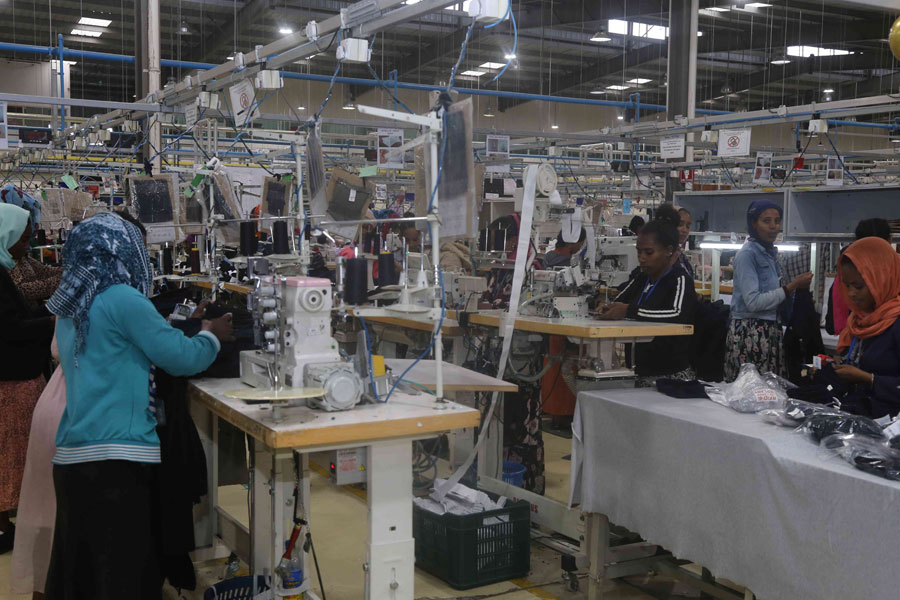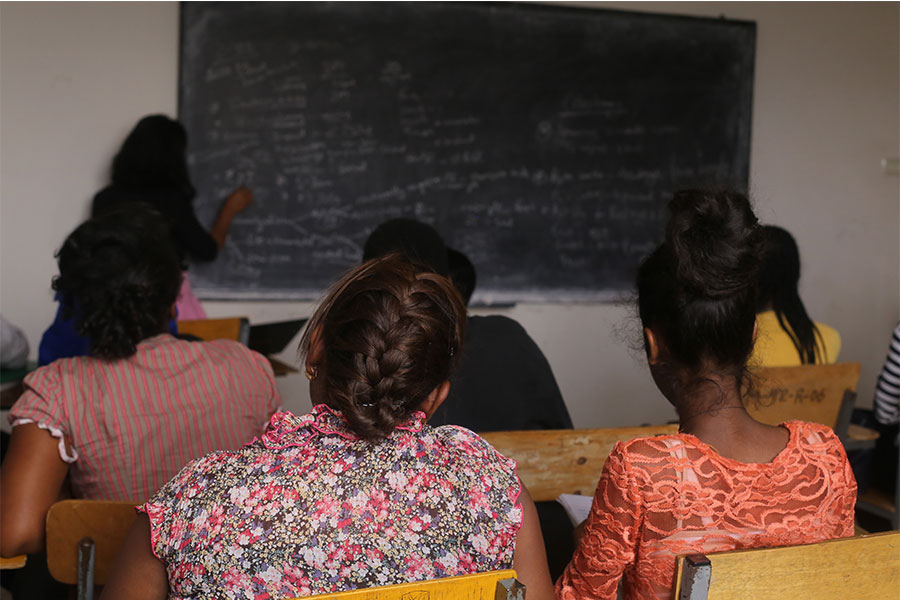
Leather and textile exporters have a reason to greet warmly federal authorities’ recent decision to relax mandatory requirements when sending samples to prospective buyers overseas.
Finance Ministry officials have exempted exporters from these sectors from acquiring permits and paying duties before sending or receiving samples. They can now send or receive samples of up to 30Kg of a product without being subject to duties. Companies exporting leather products can send and receive up to 30sqm of hides as a sample.
Last week, Debele Kabeta, head of the Customs Commission, notified 17 customs branch offices of the Finance Ministry’s decision. Officials hope the move will foster the country’s manufacturing capability and competitiveness in international markets.
Revenues from the export of manufactured goods trail far behind forex generated from the export of agricultural commodities such as coffee and cut flowers. Last year, manufacturing exports brought in nearly half a billion dollars, almost twice lower than generated from coffee. However, the proceeds from manufactured goods’ exports were around 100 million dollars more than what exporters brought in the year before.
Manufacturers continue to decry ordeals in accessing foreign currency to import inputs, a lack of sufficient infrastructure and shortages in a skilled workforce. Among their complaints is the long process to gain approval for the shipment of samples.
Exporters must obtain support letters from the Ethiopian Investment Commission (EIC) before acquiring permits from the National Bank of Ethiopia (CBE) to send samples. Manufacturers depend heavily on samples as a pre-production task that help buyers determine whether the products meet standards before going into bulk production. They say the complex permit procedure has affected their competitiveness.
According to Biniam Tariku, commercial and logistics manager of Sumbiri Hela Intimates Plc, a textile company, the requirements have been an extra burden on exporters.
Sumbiri Hela Intimates has been operating in an 11,000sqm shed leased at Hawassa Industrial Park since January 2021. The company sends samples to buyers up to three times a month and earned revenues of 350,000 dollars last year. Exporters like Sumbiri Hela Intimates send their samples through courier services, paying an average of 1,400 Br for a single and small package.
Experts argue that relaxing the requirements will do little to ease the woes in the manufacturing sector.
“The problems in the export sector are not something that can be resolved with one directive,” said Amare Abuhay, assistant professor at the Ethiopian Institute of Textile & Fashion Technology, Bahir Dar University.
He argues that even if exporters are exempted from paying duties and obtaining permits to ship samples, drawn-out customs clearance procedures will remain a headache.
Efrem Abera, export manager of Eltex Textile & Garment, agrees.
“When a sample is sent from buyers, a customs clearance takes up to two weeks,” he said.
Incorporated in 2004, Eltex Textile manufactures pyjamas, sweaters and T-shirts. Last year, the company earned 1.1 million dollars from exports.
Efrem says the authorities’ latest measure will significantly help exporters dealing with several international buyers.
Buyers often request several samples at different stages of the production process: pre-production, top of production, and shipment samples. The number of samples sent to buyers varies depending on the capacities of exporters and the demand from buyers. Exporters must pass the sample approval assessment for every order, and the physical sample exchange process goes through four destination points before reaching buyers.
It may take long for buyers to approve samples after receiving them, and the process drags even further if the buyer rejects a sample. A study by Amare reveals that it can take up to 106 days for Ethiopian exporters to process the sample approval of an export order.
“This has a profound impact on their competitiveness,” said Amare. “Exporters should lower dependency on physical samples and embrace the latest technology to reduce production costs.”
Globally, new technologies have become important tools for exporters allowing them to send samples virtually.
PUBLISHED ON
Jul 23,2022 [ VOL
23 , NO
1160]

Fortune News | Aug 19,2023

Fortune News | Aug 12,2023

Fortune News | Aug 05,2023

Agenda | May 04,2019

Radar | Aug 30,2025

Dec 22 , 2024 . By TIZITA SHEWAFERAW
Charged with transforming colossal state-owned enterprises into modern and competitiv...

Aug 18 , 2024 . By AKSAH ITALO
Although predictable Yonas Zerihun's job in the ride-hailing service is not immune to...

Jul 28 , 2024 . By TIZITA SHEWAFERAW
Unhabitual, perhaps too many, Samuel Gebreyohannes, 38, used to occasionally enjoy a couple of beers at breakfast. However, he recently swit...

Jul 13 , 2024 . By AKSAH ITALO
Investors who rely on tractors, trucks, and field vehicles for commuting, transporting commodities, and f...

Oct 4 , 2025
Eyob Tekalegn (PhD) had been in the Governor's chair for only weeks when, on Septembe...

Sep 27 , 2025
Four years into an experiment with “shock therapy” in education, the national moo...

Sep 20 , 2025
Getachew Reda's return to the national stage was always going to stir attention. Once...

Sep 13 , 2025
At its launch in Nairobi two years ago, the Africa Climate Summit was billed as the f...